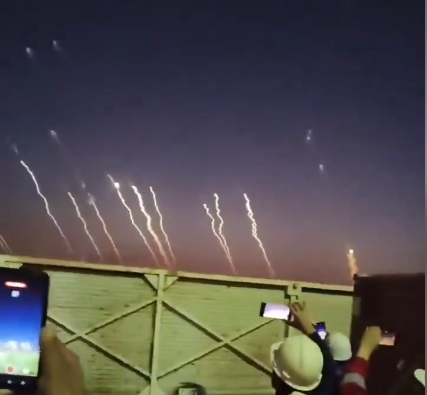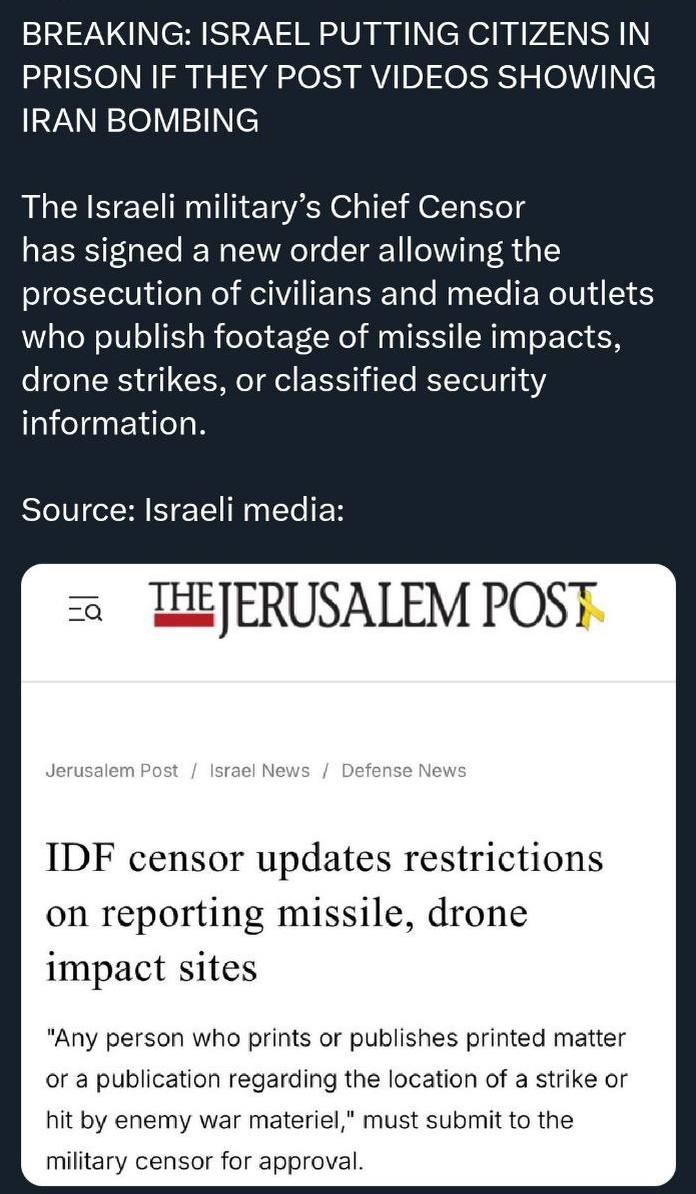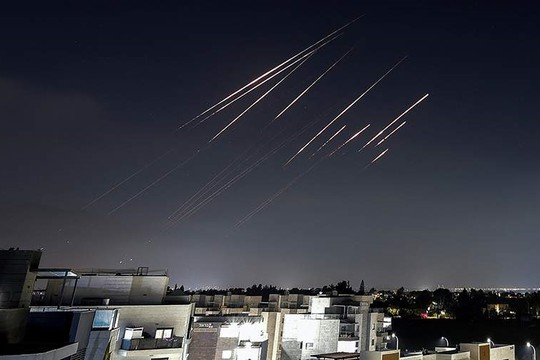Iranian missiles in the skies of Israel. Where is the anti-missile defense?
Photo: Al Jazeera
A long war of attrition between Israel and Iran may not be possible — at least at the current intensity, ‘The Washington Post’ remarks. ‘The Marker’, a leading Israeli financial newspaper, reported that missile defense costs Israel as much as 1 billion shekels, or roughly $285 million, a night.
Without resupplies from the United States or greater involvement by U.S. forces, some assessments project Israel can maintain its missile defense for 10 or 12 more days if Iran maintains a steady tempo of attacks, said an individual briefed on U.S. and Israeli intelligence assessments, adding that as early as later this week, Israel’s systems may only be able to intercept a smaller proportion of missiles because of a need to ration defensive munitions. “They will need to select what they want to intercept,” said the individual, who spoke on the condition of anonymity to discuss a sensitive matter. “The system is already overwhelmed.”
Tal Inbar, an Israeli missile expert affiliated with the Missile Defense Advocacy Alliance in Virginia, noted that in 2014, Israel sought a ceasefire with Hamas days before it ran out of air defense interceptors. The level of interceptor stocks is a highly sensitive subject in Israel, but “it could be a factor in a ceasefire” this time as well, Inbar said.
Israel employs a multilayered air defense system, consisting of its famous Iron Dome, which intercepts lower-altitude rockets; the David’s Sling and Arrow systems; and expensive Patriot and THAAD missile defense systems delivered from the United States.
Inbar said a problem for Israel is that it largely relies on the relatively expensive Arrow system, which fires missiles that cost $3 million each, to counter attacks from Iran. While inexpensive and mass-produced Iron Dome interceptors are useful against rudimentary rockets fired by Hamas, the Iron Dome is as ineffective as “shooting a 9-millimeter pistol” at heavy Iranian missiles that hurtle through the outer atmosphere at several times the speed of sound, Inbar said.
On Friday night, Israeli air defenses failed to stop Iranian missiles that narrowly missed the headquarters of the Israel Defense Forces but slammed into central Tel Aviv. On Sunday night, an Iranian missile took a major oil refinery near Haifa offline.
And on Tuesday morning, videos filmed from nearby and posted on social media, which The Washington Post verified, showed four impacts from Iranian missiles in the vicinity of Israel’s intelligence headquarters, north of Tel Aviv. One landed inside Camp Moshe Dayan, a nearby site that reportedly hosts Israel’s military intelligence headquarters and Unit 8200, the country’s premier signals intelligence unit.
Iran’s state media reported claims made by its Islamic Revolutionary Guard Corps that it successfully killed Israeli intelligence and military officials. The IDF did not immediately respond to a request for comment.
…Iranian construction workers record Iranian missile launches into Israel:


Israel's image in the world has tanked during the Gaza war, but how is Western and global public opinion responding to the current war between Israel and Iran? We asked AI platforms and got some interesting insights, ‘Israel Hayom’ informs.
The social media landscape has been – and continues to be – highly hostile toward Israel following its response to Hamas after October 7, 2023. But what's happening now? How has the preemptive attack on Iran affected the current sentiment? Has anything changed? In which countries is there greater support for Israel, and where is there more hostility?
Surveys from recent months have painted a grim picture for Israel. A YouGov poll published earlier this month showed that support and sympathy for Israel in Western Europe have reached a new low, with only 13% to 21% of respondents in various countries expressing support. In contrast, between 63% and 71% voiced a negative opinion of the Jewish state.
Since the war with Iran began a few days ago, no similar poll or studies have been published yet. Therefore, we turned to Grok, the artificial intelligence engine of the X platform (banned in Russia), and OpenAI's ChatGPT, and asked it to analyze online sentiment, focusing on several key countries.
Based on what's visible in recent posts and some web context, Grok sketched out a rough picture.
Support for Israel on X seems to pop up more from users in countries like the United States, the United Kingdom, India, and Canada. You'll see posts from these places emphasizing Israel's right to defend itself or cheering its military moves against Iran's regime.
Several countries in western Europe, such as Germany and Italy, also lean toward Israel in some posts, often tied to official government stances or shared security concerns. Jordan and the UAE get mentioned too, but it's less about grassroots X users and more about state-level alignment with Israel's defense.
On the other side, support for Iran's regime – or at least sympathy for its position – shows up more among users who seem to be from countries like Russia, China, or Pakistan. These posts often frame Iran as resisting Western or Israeli “aggression.”
Some users in Latin America and parts of Africa might lean this way too, not necessarily cheering Iran's government but criticizing Israel's actions as overreach or tying it to broader anti-Western vibes. For instance, a few posts suggest “the rest of the world” outside Western blocs feels more aligned with Iran, though that's a generalization.
read more in our Telegram-channel https://t.me/The_International_Affairs

 11:49 20.06.2025 •
11:49 20.06.2025 •























